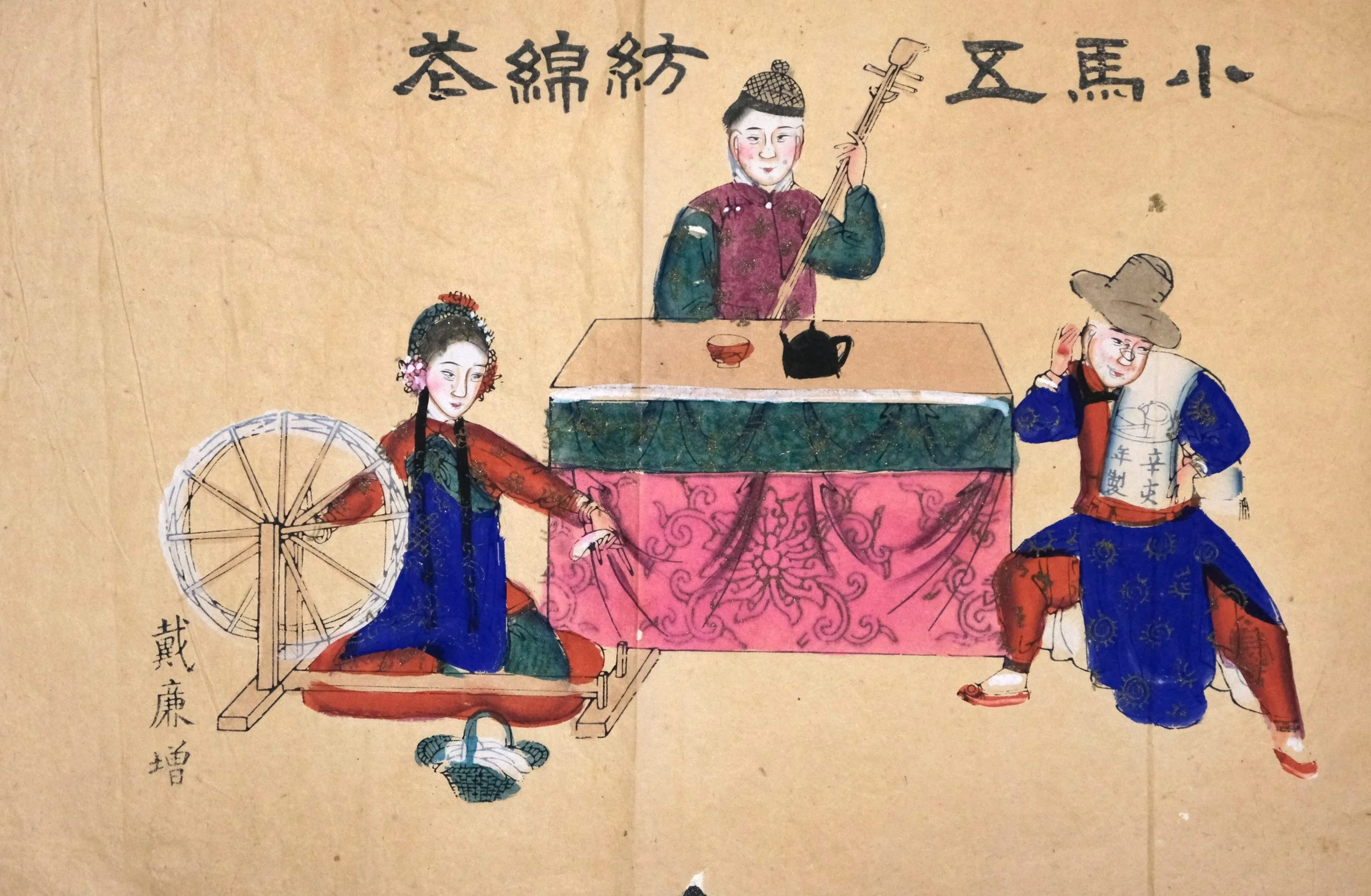Xiao Ma Wu in “Spinning Cotton” 小馬五紡綿花
Here’s a print by the Dai Lianzeng workshop (戴廉增), Yangliuqing’s oldest-known woodblock studio. Dai Lianzeng himself (1735–1795) seems to have inherited an earlier business dating back to the seventeenth century; by the mid-nineteenth century the workshop was reputedly producing over a million prints a year. They closed in the 1930s.
“Xiao Ma Wu in Spinning Cotton” by the Dai Lianzeng studio. After 1909, when Xiao Ma Wu became famous in the role
Simply designed and not especially accomplished – the overpainting is ham-fisted, despite using expensive gold powder detailing – the print is of interest for portraying the male bangzi opera performer Xiao Ma Wu (小馬五; 1894–1936), who became famous in the smutty comedy Spinning Cotton as the female protagonist Madame Wang.
Not much is certain about the origins of Spinning Cotton, but it was already popular before Xiao Ma Wu appeared in it. Performed by just two actors, backed by a musician on a two-stringed erhu, the plot involves a businessman named Zhang San who has been on the road for many years. Back home, his lonely wife Madame Wang virtuously keeps herself busy by spinning cotton all day. Having made his fortune Zhang San returns in disguise, wanting to find out if his wife has had an affair in his absence. He playfully flirts with her, but she resolutely keeps spinning and fends off all his advances. Finally convinced she has been faithful, Zhang San reveals his identity.
Photo of Xiao Ma Wu in the role of Madame Wang. Date unknown
Originally named Ma Huating (馬華亭), Xiao Ma Wu was a Muslim Hui from Cangzhou city, about eighty kilometres south of Tianjin. He first appeared in Spinning Cotton at Beijing in July 1909, aged fourteen; he created new dialogue for the role and it was a roaring success, making him famous across northern China. Unusually for actors of the time he was happily married, sober and hard-working, but died of a stroke at the age of forty-two, following a dispute with colleagues.
Spinning Cotton remained popular into the 1940s, but was frequently criticised for obscenity and finally banned for good after the communists came to power.
The print itself must date to between 1909, when Xiao Ma Wu first performed in the role, and the mid-1920s, when his popularity declined. From the Singapore National Heritage Board’s online collection, it seems that Dai Lianzeng issued a whole series of similar theatre prints (you can find several of them here), each featuring just three performers with minimal props. As far as I can see though, “Spinning Cotton” is the only one which names a specific actor.
Photo of Xiao Ma Wu: https://pmch.top/post/21.html
Recollections of Xiao Ma Wu by his son: https://new.qq.com/rain/a/20201109A0HNL800

